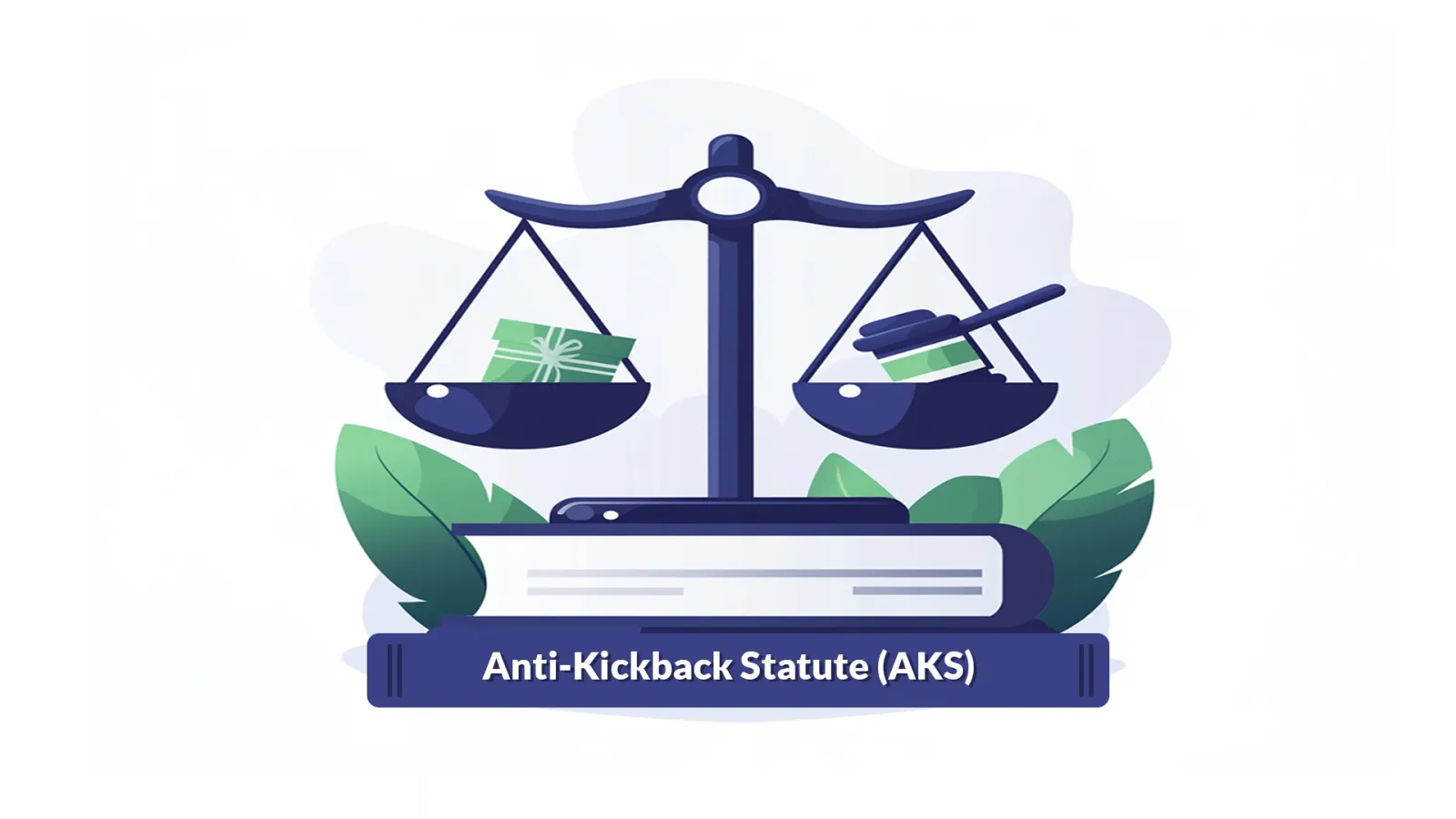
Can Gift-Giving Break the Law?
Did you know there are over 25 multinational festivals and holidays between November and January?
For many, these occasions symbolize a time of reflection, gratitude, and celebration with friends and family. Gift-giving is a common way to express camaraderie during these times. However, in the healthcare sector, even well-intentioned gifts can unintentionally lead providers into trouble with federal rules and regulations, whether you're giving or receiving gifts.
Here are a few things to consider this time of year.
When is a Gift Inappropriate?
If a gift is given to reward or encourage referrals or is perceived to reward or encourage referrals, this is considered a kickback and violates the Anti-Kickback Statute (AKS). According to the AKS:
Whoever knowingly and willfully solicits or receives any remuneration (including any kickback, bribe, or rebate) directly or indirectly, overtly or covertly, in cash or in kind… in return for referring an individual to a person for the furnishing or arranging for the furnishing of any item or service for which payment may be made in whole or in part under a Federal health care program, or in return for purchasing, leasing, ordering, or arranging for or recommending purchasing, leasing, or ordering any good, facility, service, or item for which payment may be made in whole or in part under a Federal health care program, shall be guilty of a felony and upon conviction thereof, shall be fined not more than $100,000 or imprisoned for not more than 10 years, or both. 42 U.S.C. § 1320a-7b(b)(1) (emphasis added)
The statute explains that anyone who "knowingly and willfully offers or pays any remuneration" is subject to the same penalties.
Furthermore, a gift to referring physicians (or their family members) can implicate the Ethics in Patient Referrals Act, also known as the physician self-referral law or Stark Law. While it may seem like a stretch, gifts can establish a "financial relationship." Any referrals or billed designated health services following the giving or receiving of gifts may violate the statute if billed.
In addition, states have rules and regulations that prohibit gifts in the field of healthcare. We recommend also checking your state-level rules and regulations if you are interested in pursuing giving gifts.
Are There Exceptions?
Yes, the statutes clarify that "nominal" gifts are permitted when unrelated to referrals or any financial relationships. However, demonstrating evidence the gift is unrelated to referrals or any financial relationship may prove challenging. We recommend reviewing any gift-giving ideas with your local legal counsel before taking any action.
What is a Gift of "Nominal Value"?

In 2016, the Health and Human Services Office of Inspector General (HHS OIG) updated the definition of "nominal value" in its policy statement on gifts to Medicare or Medicaid beneficiaries. A "nominal value" gift must:
- Have a retail value of no more than $15 per item, or
- $75 in the aggregate per patient on an annual basis
- Additionally, such gifts cannot be cash or cash equivalents.
What are the Consequences?
Violating the AKS, Stark Law, or other related statutes can result in:
- Civil Monetary Penalties: Significant fines for non-compliance
- Refunds of Claims Paid: Financial reimbursements to Federal health care programs
- Imprisonment: Jail time for severe violations
Who Does This Apply To?
The AKS applies to anyone who can influence a referral that could involve a claim to a Federal healthcare payer: physicians and other providers, family members of physicians and other providers, other referral sources, vendors, and gifts to patients.
Examples include:
- Gifts from vendors to the purchasing staff or other staff to induce using that vendor over another vendor
- Gifts from sales staff to induce a provider or their workforce to buy, lease, or order things paid for with federal funds
The Stark Law applies to physicians, their family members, and any entities with which they have financial ties. Regulating these interactions is essential for maintaining the integrity of medical practices.
HCP Recommendations

Do not send or receive gifts from anyone affiliated with healthcare service referrals. This practice is essential to uphold ethical standards and prevent any conflicts of interest. If you choose to send gifts anyway, we strongly recommend consulting with your legal counsel beforehand.
Looking for more information? The Health and Human Services Office of Inspector General (HHS OIG) provides a summary of these laws:
Have a pressing compliance concern? Contact your dedicated team of compliance specialists to quickly verify you're on the right track.
Not currently a client yet? The best way to learn about our comprehensive platform for managing your compliance program is to schedule a free online consultation.
Compliance is a collective effort. That's why we assist in HIPAA, OSHA, Corporate Compliance, Human Resources, and other areas with live compliance support specialists as your guide.
While the holiday season is a time for giving and expressing gratitude, it's crucial to navigate gift-giving within the boundaries of federal and state regulations. By staying informed and exercising caution, you can celebrate the season without compromising your practice's integrity or facing legal repercussions.

